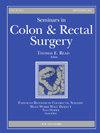生育方面的考虑,早发性结直肠癌
IF 0.5
Q4 SURGERY
引用次数: 0
摘要
年轻型结直肠癌(YOCRC)的发病率正在上升。这类患者通常表现为疾病晚期,需要更积极的治疗,这带来了独特的挑战,特别是在生育和性功能方面。本章探讨了YOCRC治疗对生育的多方面影响以及早期生殖咨询的重要性。YOCRC患者经常接受多模式治疗,包括化疗、放疗和手术——所有这些都会损害生育能力。像奥沙利铂和伊立替康这样的化疗药物已知具有促性腺毒性,对男性和女性都有不同的长期影响。盆腔放疗对性腺功能衰竭和子宫或睾丸功能障碍都有很高的风险。手术干预可能损害生殖器官或改变解剖和激素功能,导致不孕。生育保存方法——包括精子或卵母细胞冷冻保存、胚胎冷冻、卵巢转位和组织冷冻保存——为患者提供了未来生养的可能性,但需要早期干预。此外,性功能障碍是常见的,由神经损伤、辐射效应、解剖改变和心理困扰驱动,所有这些都可能进一步损害生殖潜力。鉴于YOCRC患者通常首先由外科医生进行评估,提供者早期讨论生育和性健康并将患者转介给生殖专家至关重要。提高提供者的意识和积极主动的咨询可以帮助维护未来的家庭建设的选择和提高生活质量,为日益增长的患者群体。本文章由计算机程序翻译,如有差异,请以英文原文为准。
Fertility considerations young onset CRC
The incidence of young-onset colorectal cancer (YOCRC) is rising. This patient population often presents with advanced disease and is treated more aggressively, raising unique challenges—particularly regarding fertility and sexual function. This chapter explores the multifaceted impact of YOCRC treatment on fertility and the importance of early reproductive counseling. YOCRC patients frequently undergo multimodal therapy, including chemotherapy, radiation, and surgery—all of which can impair fertility. Chemotherapeutic agents like oxaliplatin and irinotecan are known to be gonadotoxic, with variable long-term effects in both men and women. Pelvic radiation carries high risks for both gonadal failure and uterine or testicular dysfunction. Surgical interventions can damage reproductive organs or alter anatomical and hormonal function, leading to infertility. Fertility preservation methods—including sperm or oocyte cryopreservation, embryo freezing, ovarian transposition, and tissue cryopreservation—offer patients the possibility of future biological parenthood but require early intervention. Additionally, sexual dysfunction is common, driven by nerve damage, radiation effects, anatomical changes, and psychological distress, all of which may further impair reproductive potential. Given that YOCRC patients are often first evaluated by surgeons, it is critical for providers to discuss fertility and sexual health early and refer patients to reproductive specialists. Improved provider awareness and proactive counseling can help preserve future family-building options and enhance quality of life for this growing patient population.
求助全文
通过发布文献求助,成功后即可免费获取论文全文。
去求助
来源期刊

Seminars in Colon and Rectal Surgery
SURGERY-
CiteScore
0.60
自引率
0.00%
发文量
43
期刊介绍:
Seminars in Colon and Rectal Surgery offers a comprehensive and coordinated review of a single, timely topic related to the diagnosis and treatment of proctologic diseases. Each issue is an organized compendium of practical information that serves as a lasting reference for colorectal surgeons, general surgeons, surgeons in training and their colleagues in medicine with an interest in colorectal disorders.
 求助内容:
求助内容: 应助结果提醒方式:
应助结果提醒方式:


